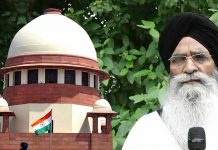
The Delhi government suffered over Rs 2000 crore loss of revenue from now scrapped 2021-2022 Excise Policy due to several discrepancies and weak regulatory functioning, the report stated on Tuesday.
The report which has been tabled in the Delhi assembly by chief minister Rekha Gupta stated that important measures like setting up of liquor testing laboratories, batch testing for rigorous quality assurance, and monitoring and regulation through creation of a dedicated post were not ensured by the previous Aam Aadmi Party (AAP) government.
“Audit observed several discrepancies in the way the Excise Department monitored and regulated the supply of Liquor in NCT of Delhi. The working of the Excise Department raises several questions about the way the department is fulfilling its responsibility. Total financial implication of the audit findings is approx. 2026.91 crore,” the report stated.
The report, one of the 14 reviews of the previous government’s performance, also pointed out the violation in the licensing process. It stated that the department could not ensure the implementation of Rule 35 of Delhi Excise Rules, 2010, which prohibits issue of multiple licences of different categories to related parties, leading to the existence of common directorship among entities holding various Licence types.
“The Excise Department suffered a loss of approximately Rs 890.15 crore on account of License fee from these zones owing to their surrender and failure of the Department in re-tendering,” the report has said.
The report also said that the government incurred loss of revenue of Rs 144 crore owing to irregular grant of waiver on account of COVID to zonal licences.
Further, the incorrect collection of Security Deposit from zonal Licences, led to loss of revenue of around Rs 27 crore.
The BJP has repeatedly accused the previous AAP administration of deliberately withholding these audit reports. Last week, Delhi chief minister Rekha Gupta had announced that all pending CAG audits—including those on state finances, public health infrastructure, vehicular pollution, liquor regulation, and the functioning of the Delhi Transport Corporation—would be made public in the first session under her government.












